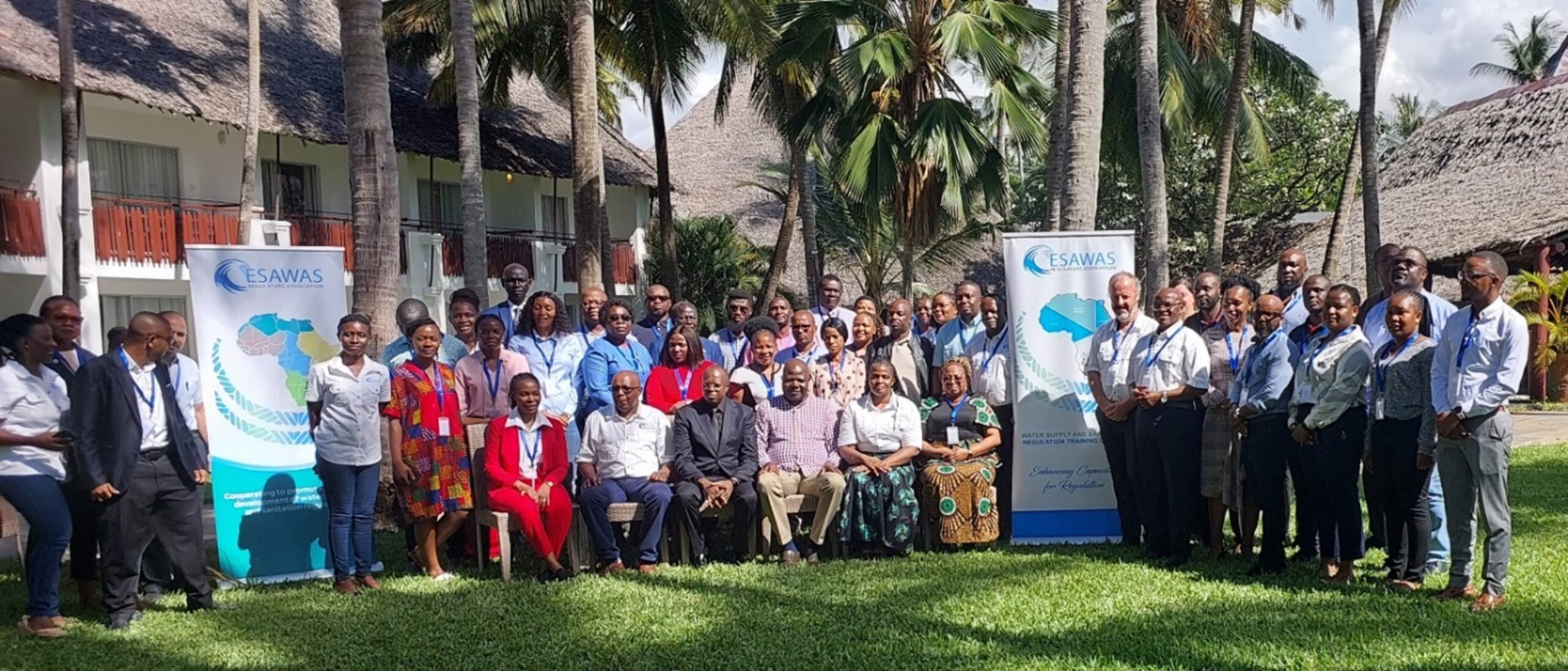Water Supply and Sanitation Regulation Training Centre: Highlights from the Inaugural Training Programme
When I joined the Water Supply and Sanitation (WSS) sector ten years ago, I did not have qualifications or experience in regulation. This was the same for my colleagues and the majority of staff in regulatory entities. In addition, I learned that there is no ‘one size fits all’ model of regulation to copy and paste. Each country must find the model which best fits its context, and this is especially true in lower- and middle-income countries which may have very different challenges and structures. My journey in regulation has been and is still a ‘learning by doing’ process. There is a strong recognition of the role of regulation in driving progress towards universal access to safely managed WSS services. The question is: where and how can regulators acquire the knowledge and competencies to regulate effectively?
Working with the Eastern and Southern Africa Water and Sanitation (ESAWAS) Regulators Association allowed me to witness how learning from each other’s good practices can help in responding to individual regulator challenges. ESAWAS has been facilitating knowledge sharing among African countries in various aspects of WSS regulation, and this has strengthened their capacity in regulation. But still, with the evolving regulatory environment, staff turnover and absence of training programmes in WSS regulation, knowledge gaps still remain.
The ESAWAS WSS regulation training centre came as a response to this challenge. The centre will serve as a knowledge dissemination hub for regulators, service providers, policymakers and stakeholders in pertinent aspects of WSS regulation. The centre was officially launched along with the first training on ‘Regulation for WSS services’ held on 19 -22 March 2024 in Mombasa, Kenya.
The training was designed to provide fundamental knowledge on regulation and WSS services provision. It was delivered by experts with strong practical experience in regulation and the WSS sector and covered the following topics:
- Basics of Water Supply and Sanitation Services – providing an understanding of networked WSS and off-grid WSS solutions, business and technical models of service delivery and approaches for service provision for the poor and social inclusion.
- Basics of regulation – discussing the origin, types and objectives of regulation; legal and institutional aspects of regulation, including the competencies, powers and functions of WSS regulators, and the importance of having an enabling environment. The module also looked at regulatory governance and good regulatory practices.
- Technical regulation – focusing on the regulation of (piped and off-grid) WSS services concerning service quality standards, with an overview of performance evaluation, benchmarking and regulatory information management.
- Economic regulation – discussing the economic regulation models, the importance of calculating the Regulatory Asset Base, general principles of a tariff system and financing models for WSS service provision.
- Contractual regulation – introducing the structure and legal model of WSS service provision contracts, types of contracts, and the role of the regulator in contract management.
- Compliance monitoring, reporting and enforcement – a practical field exercise looking at regulatory mechanisms for monitoring and reporting WSS provisions.
As the lead coordinator of the programme, I was worried, wondering if we were offering something regulators already knew. However, the participants’ enthusiasm to learn more proved that the training centre was more than needed. This was further underscored by the impressive response rate with 50 participants from 19 African countries and one from Jordan. The testimonials provided overwhelming affirmation:
“For us from West Africa, Nigeria specifically, it has been a great opportunity to participate in this training. This training can become a model for capacity building in WSS regulation” Funke Adepoju, Lagos State Water Regulatory Commission, Nigeria.
“There is a need to differentiate between having a regulator and regulating. This training has equipped us with the practical skills to regulate” Phideria Moyo, Water Services Association of Malawi.
“With the technical, contractual and economic regulation knowledge, I am now a confident regulator” Khamis Rashid Hamad, Zanzibar Utilities Regulatory Authority, Zanzibar.
“We are now more exposed through this training and all that remains is ” Hon. Peter Mahal Dhieu Akat, Undersecretary, Ministry of Water Resources and Irrigation, South Sudan.
Interested in learning more? Discover IWA’s work on policy & regulation, or check out the upcoming IWA World Water Congress & Exhibition in Toronto, Canada (11-15 August 2024), where we will host the 9th International Water Regulators Forum.



